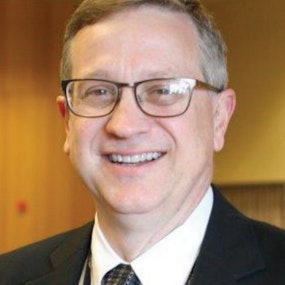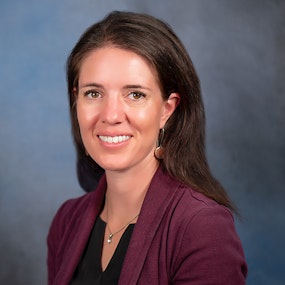ROBERT JOHNSON:
This is the award-winning Public Health Review Morning Edition for Tuesday, April 16, 2024. I'm Robert Johnson. Now, today's news from the Association of State and Territorial Health Officials.
ANNE ZINK:
I really see our role in the state of public health is to inform and educate people so that they can make the best decision for themselves and for their community and for their family.
JOHNSON:
ASTHO Immediate Past President Dr. Anne Zink of Alaska, blaming stigma for slowing progress on sexually transmitted infections.
ZINK:
So, even the fact that we only have really one treatment and it is a really old drug, and it's in short supply is a problem. We wouldn't do this for a lot of other diseases, we would have many other treatment options, particularly if it's been around this long if we put effort and time into it.
JOHNSON:
Zink says STI testing is another area that isn't keeping up.
ZINK:
As a practicing emergency physician, I can tell you if you're having a heart attack, right then right now with few tests, most of the time with the things that I need, but a sexually transmitted disease. Most hospitals don't carry point of care testing, they carry PCR testing, and it's a [...] so patients get lost within that.
JOHNSON:
She says stigma also hampers provider conversations with patients causing many to go untreated.
ZINK:
It's not my role to tell someone how they should live their life. It's my role to try to make sure that they've got the information and tools to live it as healthy and well as they possibly can.
JOHNSON:
This is STI Awareness Week, ASTHO has a report on policy considerations for reducing congenital syphilis. Download the document and review other resources using the links in the show notes.
Also, today, Alabama state health officer and ASTHO Member, Dr. Scott Harris, says the pandemic diverted people and resources away from STI work. You can read his comments and a recent article reported by the Hill newspaper. The link is in the show notes.
A new ASTHO training program is now available to help your staff learn how to address the impacts of climate change in your communities. ASTHO's Shelby Davis says the curriculum is built to allow agencies to address their individual needs.
SHELBI DAVIS:
Each agency each jurisdiction also have, you know different support they receive resources funding. So, the training, we hope that it'll strive to address different gaps and help these agencies with addressing different climate impacts in their areas.
JOHNSON:
Davis says the training features six self paced learning modules.
DAVIS:
They can save their progress and come back to it. So, it's really great. We know that health department staff are extremely busy. And so we wanted this training to be as easy as possible for them to fit into their schedules and take it on their time.
JOHNSON:
The modules cover many topics including communication, advocacy, and engagement. Students also can review relevant case studies.
DAVIS:
You know, it's always nice to look to other jurisdictions to see what they're doing and see what's worked for them, what hasn't worked for them, and then being able to apply that in your own agency.
JOHNSON:
You can sign up for ASTHO's climate for health ambassadors training program using the link in the show notes.
Finally, this morning ASTHO plans a webinar to discuss the definition of disability in the hope new approaches can lead to better support for people with disabilities during public health emergencies. The event is on Monday, April 29. There's a link to sign up in today's show notes.
Before we go a reminder also to follow this newscast on your podcast player and connect with ASTHO on social media. We are on LinkedIn, Twitter, and Facebook.
That will do it for today. We're back tomorrow morning with more ASTHO news and information. I'm Robert Johnson. You're listening to the award-winning Public Health Review Morning Edition. Have a great day.







